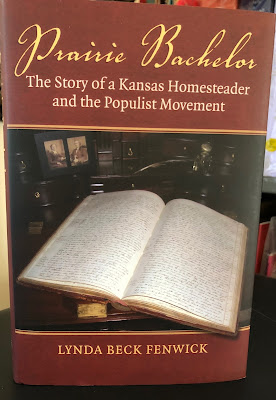Remember the game of telephone (sometimes called Gossip) from when you were a child? The players sat in a large circle or line, and the game started by the leader whispering a sentence into the first player's ear. The sentence had to be long enough to transmit a significant amount of information but not so long as to be difficult to remember. The player would then turn to the player next to him and whisper what they thought they had heard. There could be no repeating. The message would circulate around the circle or along the line until it reached the last player, who had to state the message aloud.
The purpose of the game was to see if the message had changed as it went from person to person. Sometimes the sentence would go around the room fairly accurately, but often it would have changed as it was repeated from person to person. I often think of that childhood game when I hear someone repeat news they have heard, especially when I have already heard the news directly. Too often, the details do not match.
Last week's blog included "truthiness," and how words come into our language. This week's blog focuses more on how misinformation evolves.
Truth: the body of real things, events, and facts; Verity: the quality of a thing that is exactly what it purports to be or is in complete accord with the facts.
When I was a little girl, just beginning to learn how to cook, my mother was teaching me how to prepare a cake mix. As I added the eggs she told me that I needed to be very careful as I put the eggs into the mix, because (she said) egg shells are like glass, and if a shell got into the cake it could do serious harm (even death) to the person who swallowed it. Whether my mother told me that just to make me be careful, or she meant it as a tease, I cannot say, but I took it seriously for many years. Only when our beloved little dog didn't die after eating the Easter Eggs I had decorated did I realize that egg shells weren't killers.
Honesty: Adherence to the facts; a refusal to lie, steal, or deceive in any way.
Sometimes memory can shift in the process of telling something over and over, until the distinct memory of the event or information loses its original clarity. In legal cases that last for months, and even years, with multiple occasions to relate events, it may be hard to retain the original clarity. Yet, witnesses under oath are expected to be accurate.
Oath: a solemn attestation of the truth or inviolability of one's words.
In past times, when communities were smaller and local reputations for honesty were well known, people were aware that there were neighbors with whom they could do business on a handshake, and others with whom you had better get things in writing. Sadly, today's world seems to place less value on honesty. In fact, some would regard a person who would do business on a handshake a fool, and conversely, some see slick dishonesty as smart dealing. To this perspective I offer one final definition:

Good Character: That which reflects notable or conspicuous traits of moral excellence.
With Memorial Day coming soon, my thoughts turn to service, integrity, courage, honor, and truthfulness. Unlike the game I used as my first example, trying to get facts straight is not a game. I cannot guess my mother's motive for her egg shell story. As a lawyer, I place particular importance resolving the accuracy of testimony. I believe that a lie is far more likely to trip a witness up than the truth. As for an oath, I regard that very seriously, and from the looks on the faces of the young soldiers pictured above, it appears they do too.

This photograph is one of my favorites. The veteran seated in the chair had marched on Memorial Day at our local cemetery for many years, and that year, although he could not carry a riffle, he managed to march in with the other veterans. It was a windy day, as the photograph shows, and his unsteady marching had worn him out, but he took his place between the flag bearers for as long as he could. Unfortunately, the minister delivering the program that morning had quite a lot to say. When the older gentleman was asked by a fellow veteran if he was getting tired, he nodded, and pointed into the crowd to a chair, which was brought out to him. While he did sit down for the rest of the ceremony, that old soldier did not leave his post. I believe that Memorial Day was his last.












